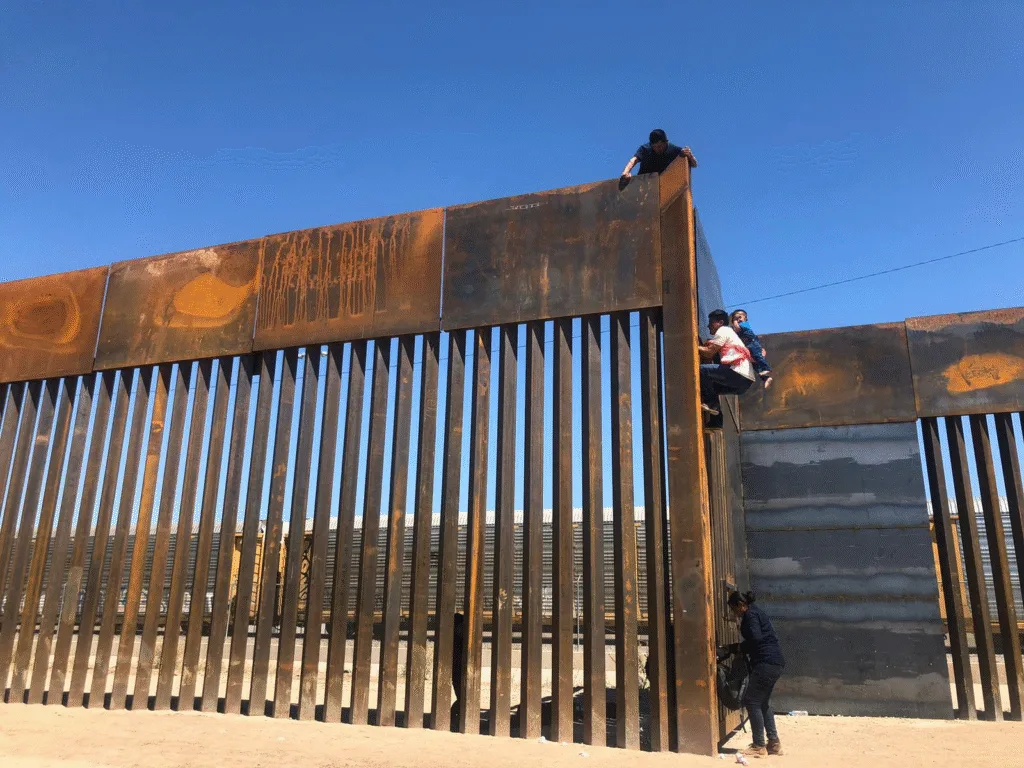“The Most Horrible Thing I’ve Ever Done”: A Border Patrol Officer Who Separated Families Speaks Out
January 7, 2020
Share
In the summer of 2017, nearly a year before the Trump administration’s family separations at the Southwest border sparked an international outcry, the Border Patrol was quietly piloting its own, local version of “zero tolerance” in El Paso, Texas.
In the FRONTLINE documentary Targeting El Paso, an officer tasked with separating migrant children from their parents under that pilot program speaks out — offering a rare public criticism of the initiative from within Border Patrol’s own ranks.
“That was the most horrible thing I’ve ever done,” Wesley Farris, a high-ranking officer with El Paso’s Border Patrol Union, tells FRONTLINE’s Martin Smith in the above excerpt. “You can’t help but see your own kids.”
Carrying out those separations, Farris says, was a tough order.
“I mean, none of us were happy about it,” Farris says. “But everybody around me was just doing exactly what… We were all told to do this.”
Experts say the tactic causes lasting trauma. In the above excerpt, Farris tells FRONTLINE about the effects he witnessed on a child during the last family separation he conducted.
“It was a young boy. I think he was about two. The world was upside down to that kid,” Farris says. “So when the contractor tried to take him away, he reached for me and he climbed up on me again, and he was holding on to me. So that that one got me a little bit.”
After that, Farris says he drew the line: “I said at that one, ‘I’m not doing this anymore. I won’t do it. I went back to the supervisor and I told him, ‘Don’t assign me to do that anymore.’”
Farris didn’t complain up the chain, but told FRONTLINE he wanted to.
As the documentary goes on to report, six months after the El Paso pilot ended, the Trump administration decided to scale up the program nationally to stem the flow of migrants — saying it had worked as a deterrent in El Paso.
“It aligned with my experience, in the times where we applied a consequence to people who cross the border illegally, we got less of them crossing the border illegally,” Ronald Vitiello, former acting director of U.S. Immigration and Customs Enforcement (ICE), tells FRONTLINE. “And so when zero tolerance is discussed as a way forward, we knew that it was going to be a benefit to us.”
“Zero tolerance” is just one of the immigration tactics piloted in El Paso. From producer Marcela Gaviria, correspondent Martin Smith and their team, the documentary Targeting El Paso investigates how the border city that’s been called the Ellis Island of the Southwest became a testing ground for some of President Donald Trump’s most controversial immigration policies, a subject of his anti-immigrant rhetoric, the site of a surge of migrant families crossing the border — and, on August 3 of last year, the target of a white supremacist with an assault rifle.
Watch the documentary in full below to learn how El Paso has become front and center in America’s ongoing immigration battle:
Targeting El Paso premiered Tuesday, Jan. 7 on PBS. Along with more than 200 other documentaries, it is now streaming at pbs.org/frontline and on the PBS Video App.
This post has been updated to include an embed of the full documentary.

Related Documentaries
Latest Documentaries
Related Stories
Related Stories
Explore
Policies
Teacher Center
Funding for FRONTLINE is provided through the support of PBS viewers and by the Corporation for Public Broadcasting, with major support from Ford Foundation. Additional funding is provided the Abrams Foundation, Park Foundation, John D. and Catherine T. MacArthur Foundation, Heising-Simons Foundation, and the FRONTLINE Trust, with major support from Jon and Jo Ann Hagler on behalf of the Jon L. Hagler Foundation, and additional support from Koo and Patricia Yuen. FRONTLINE is a registered trademark of WGBH Educational Foundation. Web Site Copyright ©1995-2025 WGBH Educational Foundation. PBS is a 501(c)(3) not-for-profit organization.





















